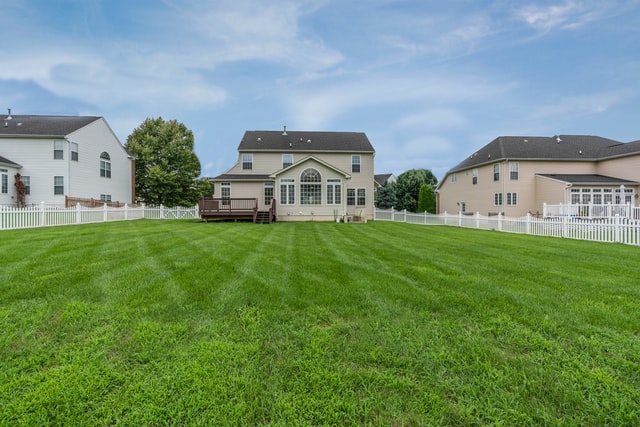Knowing rules, laws, and guidelines attached to mortgages in UAE can be a tedious and fussy business so here’s
a quick beginner’s guide to mortgages in UAE.
If you are entering the real estate market in Dubai or any of the other Emirates, one of the most significant steps to keep in mind is financing your property investment. A majority of people in the UAE turn towards a mortgage to pay off their purchase. However, the process of taking out a mortgage, as well as the laws and regulations related to it, can be quite intimidating if you are still a beginner. Therefore, we have brought you everything that you need to know about mortgages and the laws related to them. Read below…
[toc]Read More:- What Is The Required Minimum Salary For a Credit Card In UAE
Mortgage Laws in UAE
Mortgage laws in UAE are cited under Law No. (9) of 2009, which came into action as a result of certain amendments to Law No. (13) of 2008. This law regulates the interim real estate register in the Emirates, which is also known as “Mortgage Law”. Various articles of this law state have the following foundations:
- Definitions (Articles 3-6): These articles define the standard definitions of mortgage, mortgagee, and mortgagor, as per the mortgage laws in UAE.
- Registration of a Mortgage (Article 7): This article states that a mortgage is not valid unless it is registered with the Department and any agreement to the contrary is void. Also, the Mortgagor, that is, the Owner of the property, shall bear the costs of the contract unless otherwise agreed. The cost of registering a mortgage is a fee of 0.25% of the loan amount plus AED 4,100.
- Mortgage Application Procedure for RERA (Article 8-10): These articles outline all the particulars that must be accompanied along with a mortgage application so that it can be registered.
- Legal Effects of a Mortgage (Articles 10-20): These lay out the rights and restrictions of both the mortgagor and the mortgagee during the period of the mortgage.
- Execution Proceedings on the Mortgaged Property (Articles 25-30): Clearly outlines instructions on how a mortgagee may commence proceedings against a mortgagor if it is found that the mortgagor is in default in this payments. The law calls for the property to be sold at a public auction after all the requisite procedures and notice periods have been met.
Read More:- What is the current 3 Month EIBOR rate?
What is the LTV (loan-to-value ratios) for a mortgage in UAE?
The loan-to-value ratios (LTV) are set by the mortgage regulations in UAE which are:
First property Mortgage:
- UAE Nationals: UAE Nationals get an LTV ratio of 80% for property valued at AED 5 million or less and an LTV ratio of 70% for property valued at more than 5 million.
- Expats (UAE Residents): Non-UAE Nationals get an LTV ratio of 80% for property valued at AED 5 million or less and an LTV ratio of 65% for property valued at more than 5 million.
Second property Mortgage:
- UAE Nationals: For subsequent property, UAE Nationals get an LTV ratio of 65% irrespective of the value of the property.
- Expats (UAE Residents) : For subsequent property, non-UAE Nationals get an LTV ratio of 60% irrespective of the value of the property.
Off-plan/ Under Construction property mortgage:
- UAE Nationals: For off-plan mortgages, UAE Nationals get an LTV ratio of 50% irrespective of the value of the property.
- Expats (UAE Residents) : For off-plan mortgages, non-UAE Nationals get an LTV ratio of 50% irrespective of the value of the property.
| Property type | Property price | Maximum LTV
(loan-to-value ratio) |
Minimum Down
Payment Required |
| First property Mortgage | Under AED 5 million | 80% | 20% |
| First property Mortgage | Over AED 5 million | 70% | 30% |
| Second, third+ property | Any price | 60% | 40% |
| Off plan / under-construction property | Any price | 50% | 50% |
You are advised to keep in mind that under Central Bank laws, no more than 50% of your total income should be committed to paying off your debts including mortgage payments, credit cards dues, other loans, etc. That’s why it is essential to carefully examine your financial situation before applying for a mortgage.
Checkout your Eligibility – Get Free Mortgage Advice from our experts
What are the types of mortgage interest rates in UAE?
Based on payment rates, mortgages are classified into two types:
Fixed-rate mortgages
In this particular type of mortgages, the rate of interest is determined before the start of the term of the mortgage and remains the same throughout the period. Usually, fixed-rate mortgages are granted for a period of two, three, or four years, but they are sometimes also offered for the entire term of the loan. This type of mortgages have quite a few advantages, some of which are listed below:
- In fixed-rate mortgages, borrowers can find a clear budget since they know that the rate of interest will remain the same throughout the term of the loan.
- Even if mortgage rates rise in the future, it will not be a problem for the borrowers since a fixed rate of interest has been locked.
- The borrowers know in advance how much they will be paying each month.
Variable-rate mortgages
Under the Variable-rate mortgages, the interest rate is dependent on market factors and is, thus, susceptive to change during the term of the loan. Variable-rate mortgages have the following features that should be kept in mind:
- It can be of advantage to the borrowers if the interest rates in the market stabilize or decrease at some point in time.
- Borrowers should make sure that they have the financial stability to handle any change in mortgage rates before they opt for variable-rate mortgages.
Check out the best mortgage rates in UAE today.
The UAE Mortgage Cap
In addition to the mortgage laws, you must know about the Mortgage Cap in UAE before you proceed with a mortgage.
- The Mortgage Cap was first announced in December 2012 when speculators began seriously ramping up UAE property prices.
- For expatriates, it capped mortgages to 75% of the valuation for the first purchase and 80% for UAE nationals.
- Loans above AED5million are capped further, 65% for expatriates.
- If you want to buy a villa in Dubai in the AED 5m – 10m you need almost 50% of the price in cash.
The United Arab Emirates (UAE) property market has experienced quite a few major developments within the past decade, with a host of new laws, initiatives, and real estate projects being announced. Over the years, the UAE real estate market has been characterized by a great deal of positivity and improvements.
Apply for a Mortgage Pre-Approval in UAE online.
Original Post Date : June 12, 2020 , Updated on : Oct 02, 2020


